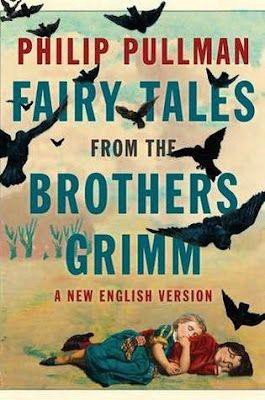“A Fairy Tale Is Not a Text”

Let’s just go ahead and acquire Philip Pullman’s interpretation of the Brothers Grimm stories, okay? Maria Tatar says we should, and if anyone should know, it’s her.
Pullman’s investment in fairy tales is both intellectual and moral. From fiction, he tells us, we learn about good and evil, cruelty and kindness, but in ways that are always elliptical, as the text works on us in its own silent, secret way. “ ‘Thou shalt not’ might reach the head, but it takes ‘Once upon a time’ to reach the heart,” he once observed. Fairy tales began as adult entertainment — stories told just for the fun of it. But with their exacting distribution of rewards and punishments, they also increasingly tapped into the human urge to derive morals from stories, In his own fiction, as well as in these retellings of the Grimms’ fairy tales, Pullman tells stories so compelling that he is sure to produce in the reader the connection — both passionate and compassionate — that Nabokov called a little “sob in the spine.”
You may also purchase The Bloody Chamber, naturally, and maybe rent this weird-ass movie, and then try to buy the correct edition of Edward Lear’s “The Jumblies,” even though you keep accidentally buying it with these illustrations instead of THESE ILLUSTRATIONS, which are even better than these illustrations.